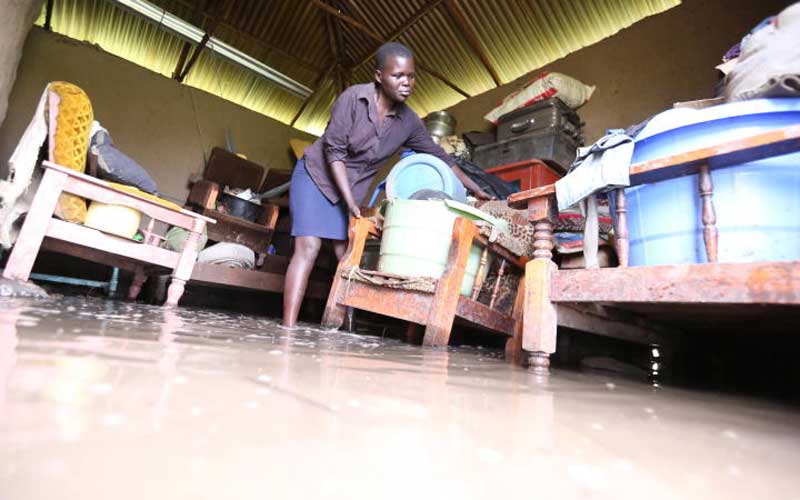×
The Standard e-Paper
Stay Informed, Even Offline

A flooded home at Kanyagilo village in Nyando, Kisumu County. Residents have now relocated to Kanyagilo Evacuation Camp. [Collins Oduor, Standard]
More than 1,600 acres of food crops have been destroyed and over 600 families displaced following rising water levels in Lake Victoria, resulting in a massive backflow.